Muscle cramps occur when muscles involuntarily get shorter (contract). If you’ve ever experienced cramping muscles, you’ll know that symptoms range from mildly uncomfortable to downright painful. The causes of cramps include dietary choices, medication use, and repetitive motion. Luckily, most muscle cramps respond well to home treatment. This complete injury guide will tell you all you need to know about cramping muscles.
What are Muscle Cramps?
Muscle cramps are sudden muscle contractions. Most of the time, these spasms are harmless and go away in a few minutes. But while the muscle is cramping, you won’t be able to use it or control it.
Cramps typically last from a few seconds to a few minutes. Some people experience recurrent cramps that make it seem like the spasms don’t end.
You can get muscle cramps in any part of your body, but they usually occur in the legs, feet, back, and stomach.
What Causes Muscles Cramps?
Sometimes, there is no identifiable cause of muscle cramps. Known causes include:
Overuse or Injury
Exercise or other physical activities can lead to cramping muscles. Repeated motions put stress on the muscles and can cause them to become strained or injured. Staying in the same position for prolonged periods may also cause cramping.
Dehydration
When you become dehydrated you’re not just low in fluids, you’re also low in electrolytes. These ionized nutrients—which include calcium, magnesium, and potassium—are necessary for the proper function of muscles. Dehydration and loss of electrolytes cause muscle cramps, thirst, headaches, and dark yellow urine.
You can become dehydrated if you don’t drink enough water, but also if you lose fluids through excessive vomiting, sweating, or diarrhea.
Inadequate Blood Supply
Reduced blood flow can cause cramping pains in the legs and feet during physical activity. Symptoms usually subside after you stop exercising. Narrow arteries are the most common culprit in cases of inadequate blood supply.
Nerve Compression
When nerves in the spine become compressed, they can cause the sensation of cramping pain in the legs. This pain often gets worse when walking.
Use of Diuretics
Many people with high blood pressure are given diuretic medications. But use of diuretics can deplete your resources of electrolytes and cause muscle pains.
Digestive Issues
Several medical conditions, including irritable bowel syndrome (IBS) and Crohn’s disease, can cause stomach cramps. You may also experience stomach cramps if you have diarrhea, constipation, or food poisoning.
Risk Factors
Factors that increase the risk of getting muscle cramps include:
- Older adults are more prone to cramping and overworked muscles because they have less muscle tone than younger people.
- Pregnancy and menstruation. Muscles in the uterus can cramp up during pregnancy and menstruation, but many women also experience muscle cramps in the legs at these times.
- Medical conditions. People with diabetes, thyroid disorders, or nerve or liver problems are at greater risk of muscle cramps.
- Exercising in warm weather. Physical activity in hot climates can cause muscle cramps due to dehydration and electrolyte imbalances.
Symptoms of Muscle Cramps
Cramps occur in many different parts of the body. The signs and symptoms of the cramps can vary, depending on the location.
Muscles Cramps in the Legs
Leg cramps cause a tight and painful sensation, usually in the calf muscles. However, any part of the leg can be affected. In addition to the pain, you might find a hard lump or knot under the skin. Once the cramping subsides, you may still have tenderness or dull pain in the affected area. Most leg cramp symptoms occur during sleep.
Muscle Cramps in the Feet
Cramps in the feet and toes can be particularly painful. You toes may curl up or become bent out of shape temporarily as the muscles spasm and contract. You may notice an increase in foot cramps after running or wearing tight-fitting shoes.
Muscle Cramps in the Back
Cramps in the muscles of the back can feel like tightness, tension, or pain. They can also feel like muscle knots. These sensations may last from a few seconds to a few days. Sometimes, the pain can radiate to other areas. Poor posture is a common cause of muscle cramps in the back.
Stomach Muscle Cramps
You may notice stomach muscle cramps and tenderness after repetitive physical activity, such as crunches or situps. These cramps may get worse when coughing or laughing.
But the deeper muscles in the stomach can also cramp up due to illness, infection, or a build-up of gas. If digestive problems cause your stomach cramps, you may also experience bloating, sharp pain, and a feeling of fullness. Other symptoms include diarrhea and constipation.
When To See a Doctor
Muscle cramps usually disappear on their own. However, if cramps cause severe discomfort or don’t improve with home remedies, you should see a doctor. Frequent muscle cramps, especially those that have no obvious cause, may also require medical attention. If your cramps are mainly in your stomach, you should get a medical check-up as they may be related to a digestive disorder that requires treatment.
Muscle Cramps Remedies
Many people wonder what to do for muscle cramps. Typically, self-care treatments and home remedies are enough to cure the majority of cases. Some of the most effective muscle cramp treatments include:
Hydration
Dehydration leads to loss of electrolytes and muscle cramps and spasms. Luckily, dehydration is easily preventable for most people. Simply drink plenty of fluids every day. The amount you require depends on your age, level of activity, the climate you live in, and the medications you take. A good rule of thumb is to check your urine—it should be a light straw-color.
Also, limit your intake of alcohol and caffeine as these are diuretics that increase the amount of fluid and electrolytes that leave the body.
Ice and Heat
Hot and cold therapy can relieve all manner of aches and pains. For muscle spasms and trigger point pain (knots), a heating pad is best. Alternatively, take a warm bath or hot shower. Pain and inflammation caused by overworked muscles may be relieved with an ice pack.
Stretches
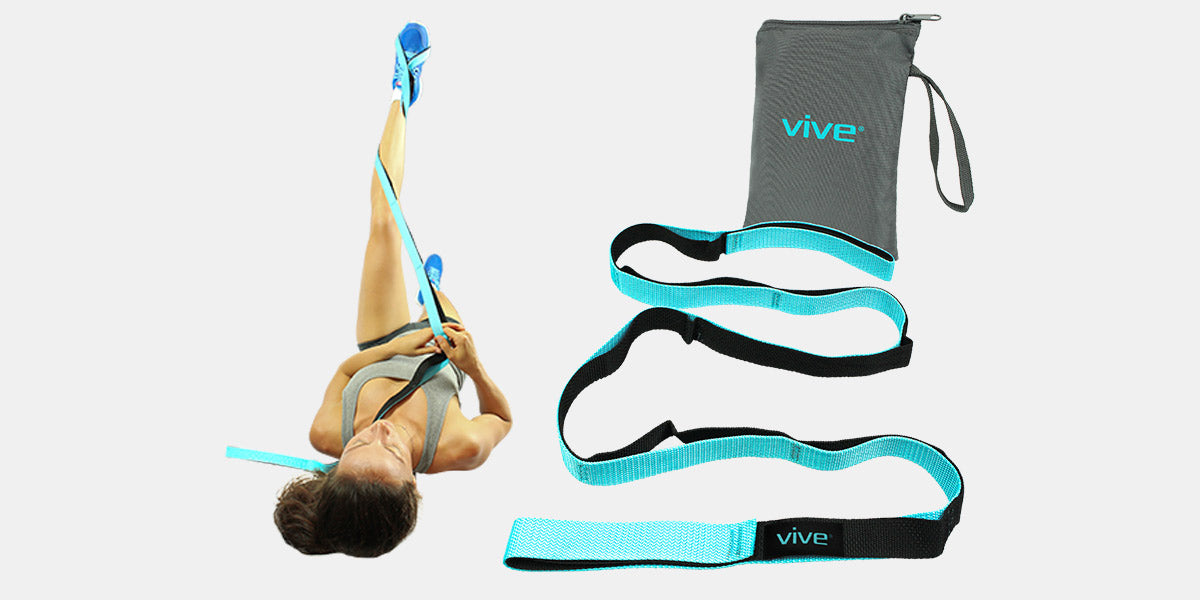 Stretch straps are a great way to boost any pilates or yoga workout. (See Product )
Stretch straps are a great way to boost any pilates or yoga workout. (See Product )
Stretch out tight muscles regularly to alleviate or prevent cramps. Not all muscle cramps, like stomach cramps, can be relieved with stretches, but many can. For foot cramps, pull the toes up toward the head while keeping the leg straight. Those with limited mobility may wish to use a stretch strap.
Calf cramps can be cured by extending your cramping leg straight out behind you with your heel on the ground. Bend your front leg and put most of your weight on that leg until you feel a stretch in the affected calf. Back cramps can be stretched out, but it depends on the area of the back that is affected.
For full-body stretching, try some Pilates positions. Those who are prone to muscle cramps at night, should stretch before bedtime. If your muscles keep cramping on a regular basis, you may wish to work with a physical therapist who can show you the appropriate exercises to use for prevention and relief.
Toe Separators
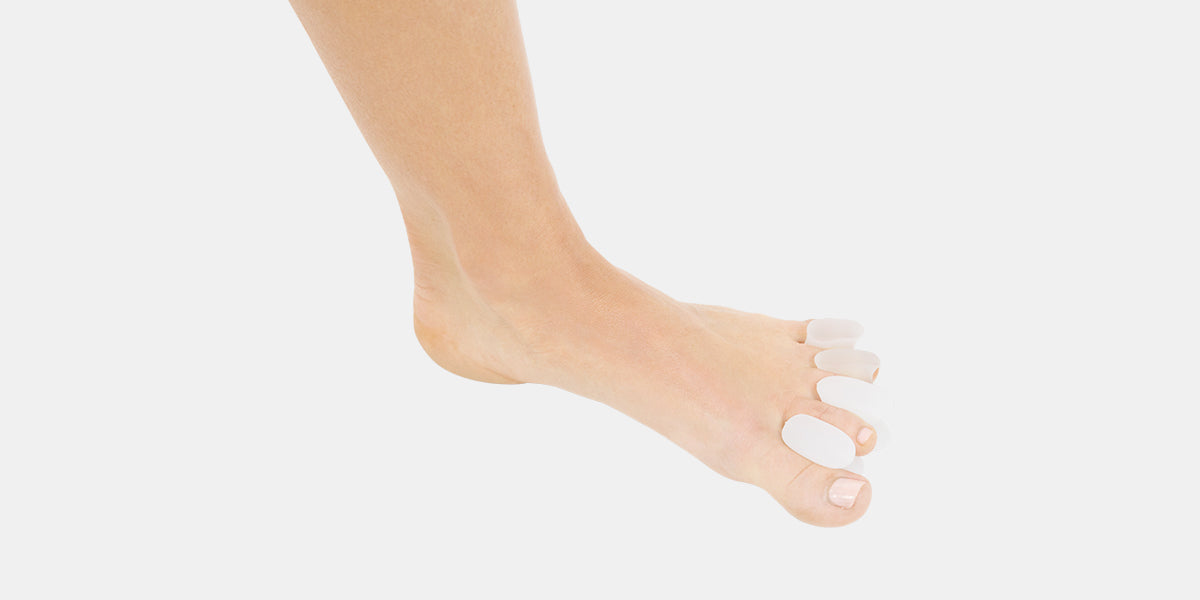 Straight toes is the best defense against foot cramps, so invest in toe separators today. (See Product )
Straight toes is the best defense against foot cramps, so invest in toe separators today. (See Product )
Runners frequently get muscle cramps in the feet because of the pressure placed on the toes while running. To stretch out your toes and stop cramps before they start, make toe separators a part of your post-running routine.
Correct Posture
 A posture brace will ensure correct spinal alignment, reducing cramps and have you walking tall. (See Product )
A posture brace will ensure correct spinal alignment, reducing cramps and have you walking tall. (See Product )
Spending the day hunched over a desk, or sitting down with poor posture, majorly increases your risk of muscle cramps in the back or neck. Practice sitting and walking upright, and make sure your workspace is ergonomically correct. If you need a little extra back support, try using a posture corrector. Those with serious misalignment may need to consult a chiropractor or physical therapist.
Massage Balls
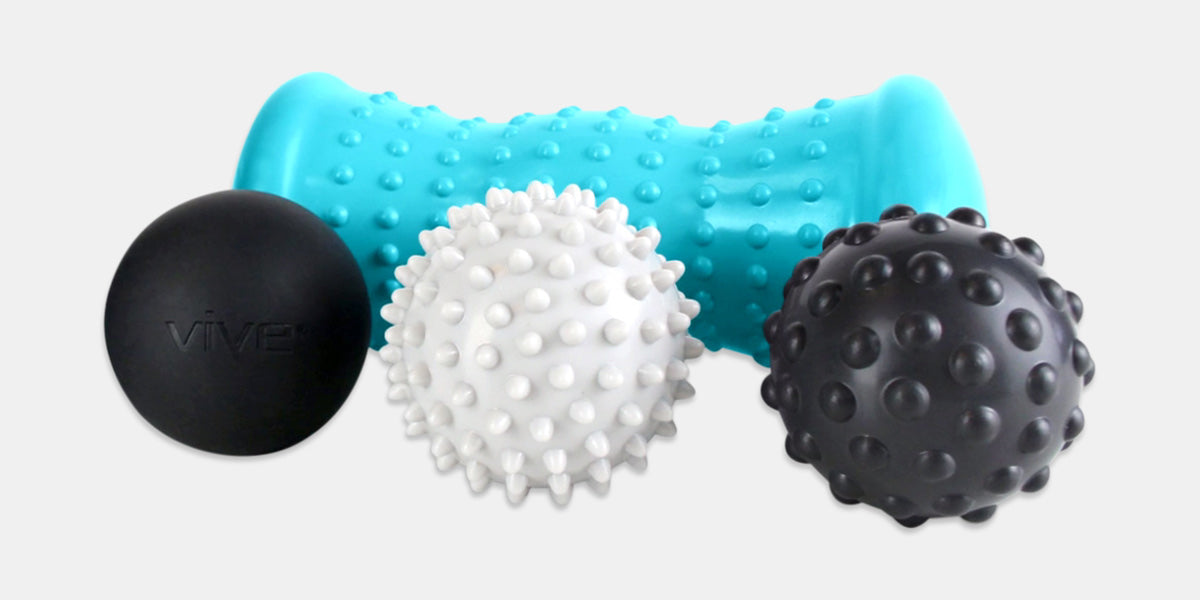 Get a customized massage in the comfort of your own home today, with this massage roller set. (See Product )
Get a customized massage in the comfort of your own home today, with this massage roller set. (See Product )
Work out muscle pain and boost blood flow to cramping tissue with massage therapy. Gently rub the affected muscles until the cramp eases off. For stubborn knots or hard-to-reach areas, invest in a good massage ball set.
TENS Unit
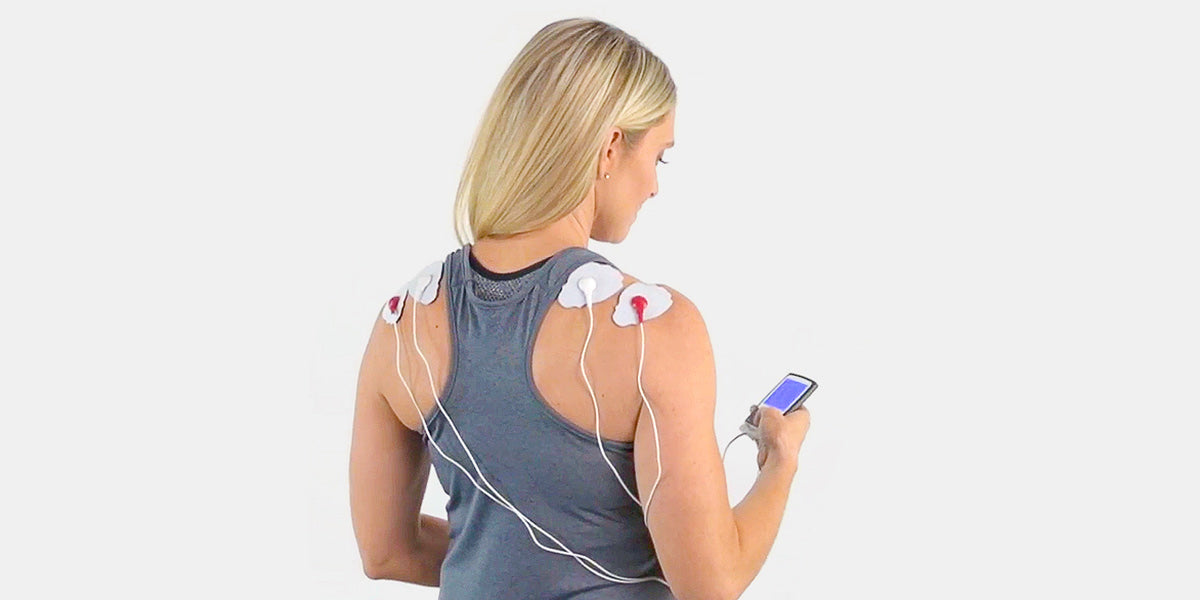 The great thing about a TENS unit is it can be applied almost anywhere on the body. (See Product )
The great thing about a TENS unit is it can be applied almost anywhere on the body. (See Product )
Transcutaneous electrical nerve stimulation (TENS) is a pain-relieving therapy that uses low-voltage currents. It effectively reduces muscle spasms along with nerve pain. You can reap the benefits of this treatment in the comfort of your own home using a portable TENS unit. TENS isn’t suitable for everyone, however, so be sure to speak to your doctor first.
Address Poor Digestion
Stomach cramps may be caused by digestive problems, food poisoning, or a gastrointestinal disorder. If your cramps recur, even when you treat symptoms of poor digestion, see your doctor for further investigation. Stomach cramps that are accompanied by diarrhea, fever, vomiting, or rectal bleeding require prompt medical attention.
Supplements
For people with low levels of certain electrolyte minerals such as magnesium and potassium, muscle cramp risk is naturally increased. Deficiencies in B vitamins may also cause cramping. To address nutrient deficiencies, eat a balanced diet of fruits, vegetables, whole grains, and lean protein sources. You can also consider taking a vitamin B complex and using a topical magnesium oil. Avoid taking potassium supplements without speaking with your doctor first.
Medicine for Muscle Cramps
Recurrent or severe muscle cramps may require medication. Your doctor can prescribe muscle relaxants to prevent the muscles from seizing up regularly. Rarely, therapeutic doses of Botox are given to people with muscle disorders that cause severe cramps.
You should also talk to your doctor about medications you are currently taking that may be causing or exacerbating your muscle cramps.
Products that Help Reduce Muscle Cramps
Recovery from Muscle Cramps
Muscle cramps rarely last long, and people often feel better after using home remedies or making lifestyle changes. Recovery from recurrent muscle cramps may take longer as you will need to find the underlying cause of the cramps and take steps to address it. Your doctor can help diagnose any underlying medical conditions and formulate a treatment plan.
How to Prevent Muscle Cramps
Prevent muscle cramps by taking the following steps:
- Drink plenty of fluids every day, increasing the amount when exercising or in hot weather.
- Stretch your muscles daily, especially before and after exercise.
- Regularly massage areas of the body that are prone to cramping.
- Use toe separators after running or long periods of standing.
- Practice proper posture when sitting, standing, and walking.
- Make sure your workspace is ergonomically correct.
- Eat a balanced diet to provide your muscles with the nutrients they need to function normally.
- See a doctor if you have symptoms of digestive distress.
Treat Muscle Cramps with Home Remedies
The best cure for muscle cramps is to make lifestyle changes and address the underlying cause of your cramps. Alleviate very painful cramps with massage balls, TENS therapy, and heating pads. People with recurrent cramps that affect their quality of life should see their doctor for diagnosis and medical treatment.







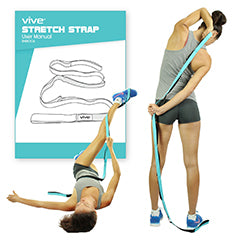
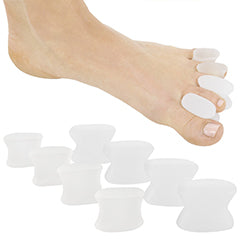

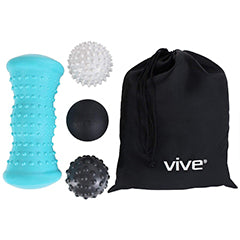
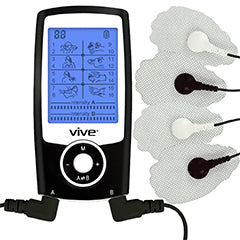
Leave a comment